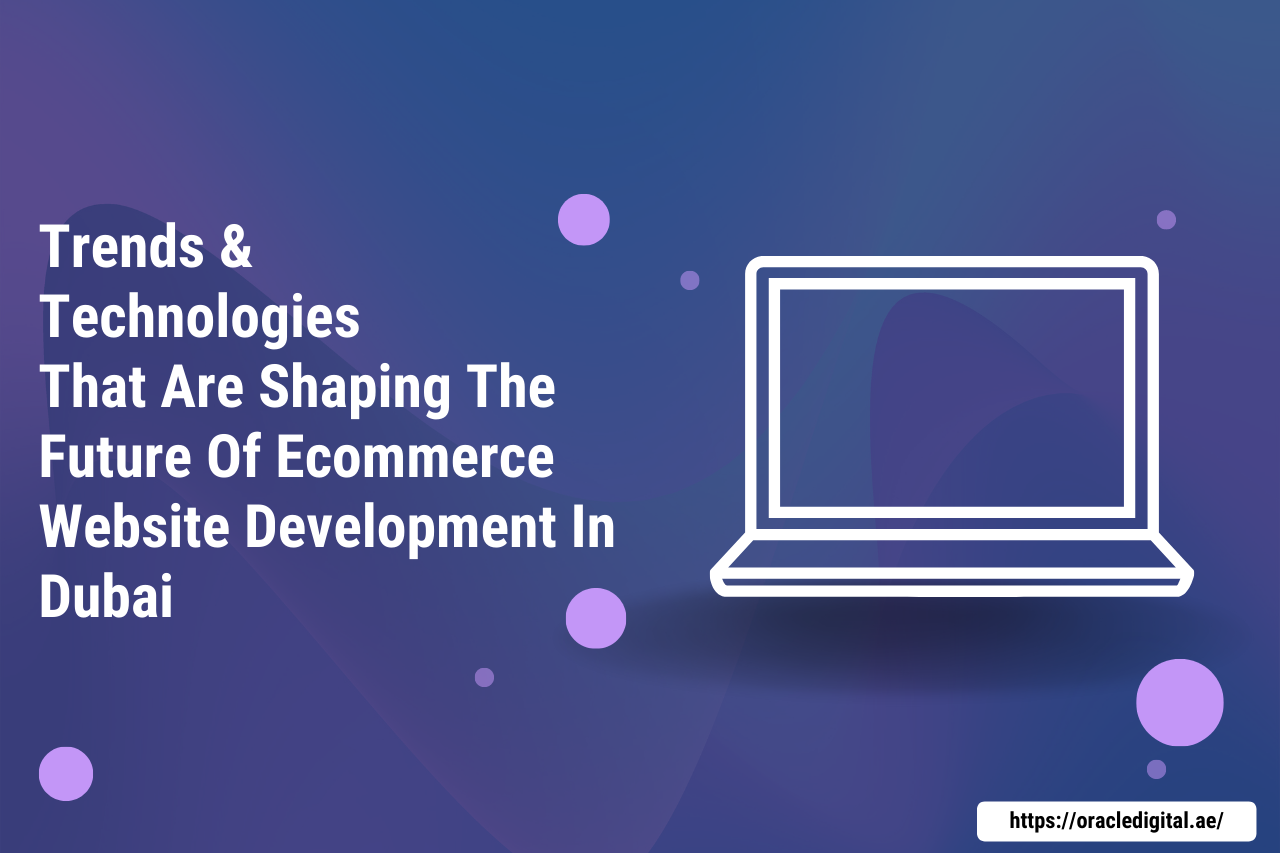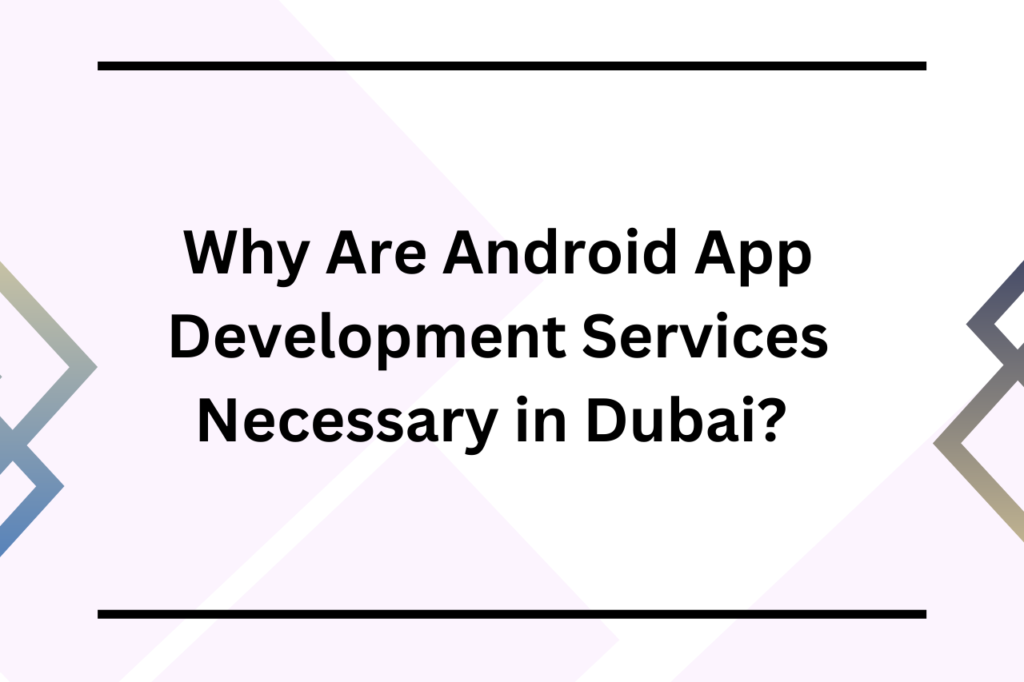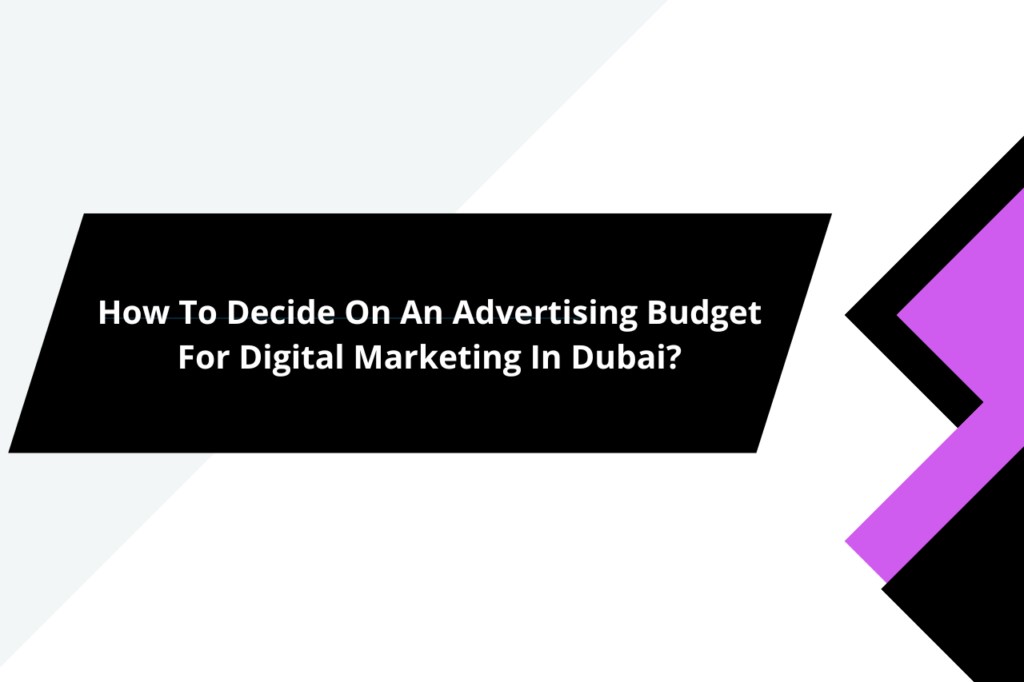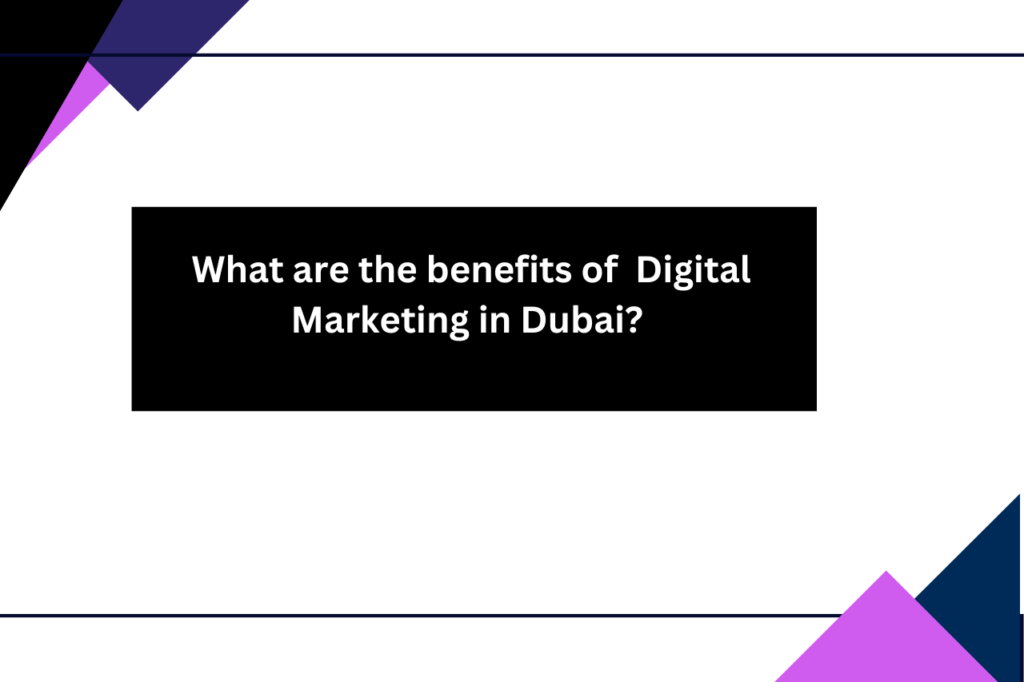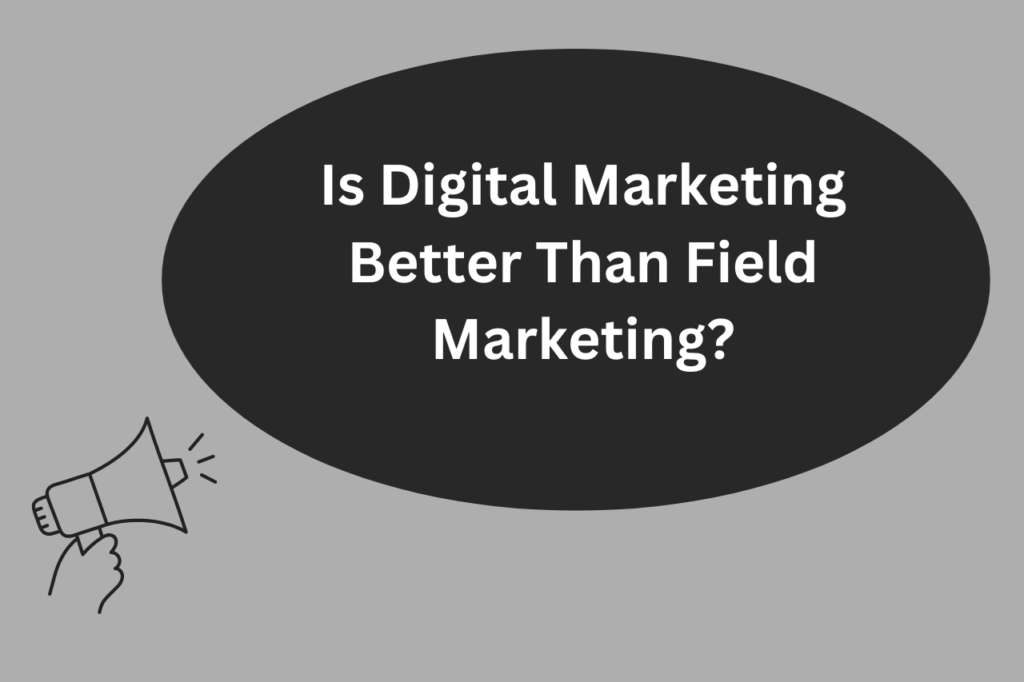The eCommerce industry in Dubai is rapidly growing and evolving, with businesses of all sizes investing in eCommerce website development to tap into the region’s growing online market. To stay competitive and meet the changing needs of consumers, businesses in Dubai are adapting to the latest trends and technologies in eCommerce website development.
From mobile optimization and personalized experiences to secure payment methods and advanced analytics, there are several key trends that are shaping the eCommerce website development landscape in Dubai. By embracing these trends, businesses can create engaging and seamless eCommerce experiences for their customers, build brand loyalty, and drive revenue growth.
In this blog, we will explore some of the top trends in eCommerce website development in Dubai, as well as their impact on the industry and how businesses can leverage them to stay ahead of the competition.
TOP TRENDS IN ECOMMERCE WEBSITE DEVELOPMENT IN DUBAI
There are several top trends in eCommerce website development in Dubai that businesses need to be aware of. These trends are shaping the future of eCommerce web design in Dubai, and businesses that embrace them are likely to stay ahead of the competition. Let’s take a closer look at these trends:
-
Mobile-first approach:
With more people using their smartphones to access the internet and shop online, a mobile-first approach is essential for eCommerce website development in Dubai. Mobile optimization is becoming increasingly important in eCommerce website development in Dubai. A study by Dubai Chamber of Commerce and Industry found that 68% of UAE consumers use their mobile phones to shop online. This means that eCommerce websites need to be optimized for mobile devices and offer a seamless shopping experience on smaller screens. This includes features such as responsive design, mobile-friendly navigation, and quick load times. Mobile optimization involves creating a responsive website design that adjusts to fit the screen size of the device. This ensures that users have a seamless browsing experience on their mobile devices, which is crucial for driving conversions.
-
Omnichannel experience:
An omnichannel approach to eCommerce is becoming increasingly popular in Dubai. This means that businesses need to offer a seamless shopping experience across multiple channels, including online and offline. This includes features such as buy online and pick up in-store, curbside pickup, and in-store pickup.
-
AI and machine learning:
AI and machine learning are being used in eCommerce to provide personalized recommendations, improve search results, and optimize pricing. This helps businesses improve customer engagement and increase sales.
-
Social commerce:
Social media platforms such as Instagram and Facebook are increasingly being used for eCommerce in Dubai. Businesses can leverage these platforms to reach out to their customers, promote their products, and drive sales.
-
Voice commerce:
With the rise of smart speakers and virtual assistants, voice commerce is becoming a new trend in eCommerce. Businesses can use voice commerce to offer a hands-free shopping experience to their customers.
-
Augmented reality (AR) and virtual reality (VR):
AR and VR technologies are being used in eCommerce to provide customers with a more immersive shopping experience. This includes features such as virtual try-ons, 360-degree product views, and interactive product demonstrations.
-
Blockchain Technology:
This technology is being used to provide an unprecedented level of security, transparency, and traceability to ecommerce transactions.
Most significantly, blockchain technology is being used in ecommerce is through the creation of blockchain-based marketplaces. These marketplaces use smart contracts, which are self-executing contracts that run on the blockchain, to facilitate transactions between buyers and sellers. This eliminates the need for intermediaries, such as banks or payment processors, and reduces transaction costs.
It is also being used in ecommerce through the implementation of decentralized product tracking systems which enhances supply chain transparency and helps to prevent counterfeiting and fraud.
Blockchain technology is being explored for its potential to improve payment processing in ecommerce. Blockchain-based payment systems can be faster, more secure, and less expensive than traditional payment methods, and can also facilitate cross-border transactions more easily.
- Subscription-based models: Subscription-based models are becoming increasingly popular in eCommerce in Dubai. This includes features such as monthly or yearly subscriptions, auto-renewal, and exclusive access to products or services.
- Green eCommerce: With increasing awareness about sustainability and environmental concerns, green eCommerce is becoming a trend in Dubai. This includes features such as eco-friendly packaging, carbon-neutral shipping, and sustainable sourcing.
- Personalization: Personalization is another key trend in eCommerce website development in Dubai. Personalization involves tailoring the shopping experience to the individual customer’s preferences and behavior. This can be achieved through the use of data analytics and machine learning algorithms. By analyzing customer data such as browsing history, purchase behavior, and search queries, businesses can create personalized recommendations, offers, and promotions. This not only enhances the customer experience but also increases the likelihood of conversion.
- Secure payment methods: In eCommerce website development in Dubai, secure payment methods are crucial for building trust with customers. With the increasing risk of cybercrime and data breaches, customers are more cautious about sharing their personal and financial information online. To address these concerns, eCommerce businesses in Dubai are incorporating secure payment methods such as two-factor authentication, encryption, and tokenization. This not only protects customers’ data but also enhances their trust in the business.
- Advanced analytics: Advanced analytics is another trend that is shaping eCommerce website development in Dubai. By leveraging data analytics tools such as Google Analytics, businesses can gain insights into customer behavior, preferences, and purchase patterns. This data can be used to optimize the eCommerce website and marketing strategies, as well as to create personalized recommendations and promotions. By understanding the customer’s journey and preferences, businesses can create a more seamless and engaging shopping experience.
TOP TECHNOLOGIES IN ECOMMERCE WEBSITE DEVELOPMENT IN DUBAI
-
PROGRESSIVE WEB APPS (PWA)
A technology that is gaining popularity in ecommerce website development in Dubai is Progressive Web Apps (PWA). A PWA is a web application that can be accessed through a browser but has the functionality and user experience of a native mobile app. PWA combines the best features of both web and mobile apps, providing an immersive and engaging user experience.
PWAs offer several benefits for ecommerce websites in Dubai, including:
- Faster Load Times: PWAs use caching and other optimization techniques to load quickly, even on slow or unreliable internet connections.
- Offline Functionality: PWAs can work offline, allowing customers to browse and make purchases even when they don’t have an internet connection.
- Push Notifications: PWAs can send push notifications to customers, keeping them engaged and informed about new products, discounts, and other promotions.
- App-like Experience: PWAs provide an app-like experience, with a full-screen mode, smooth animations, and other features that create an immersive experience for customers.
- Cross-Platform Compatibility: PWAs are built using web technologies, making them compatible with multiple platforms, including desktops, mobile devices, and even smart TVs.
In Dubai’s competitive ecommerce market, businesses are looking for innovative ways to enhance the customer experience, and PWA is proving to be a popular technology for achieving this goal. By providing a fast, responsive, and engaging user experience, ecommerce websites can increase customer satisfaction, loyalty, and sales.
-
SINGLE PAGE APPLICATIONS (SPA)
Single Page Application is another technology that is gaining popularity in ecommerce website development in Dubai. A SPA is a web application that loads a single HTML page and dynamically updates the page as the user interacts with it, without requiring a page refresh. This provides a fast and responsive user experience, similar to that of a native mobile app.
SPAs offer several benefits for ecommerce websites in Dubai, including:
- Faster Load Times: SPAs load quickly, as the entire page doesn’t need to be reloaded each time a user interacts with the website. This provides a smooth and seamless user experience.
- Better User Experience: SPAs provide an immersive user experience, with smooth transitions between pages and real-time updates. This helps to keep users engaged and more likely to make a purchase.
- Easy Navigation: SPAs allow for easy navigation, with all the important information available on a single page. This simplifies the user experience and makes it easier for users to find what they’re looking for.
- Mobile Responsiveness: SPAs are mobile-responsive, ensuring that the website looks and performs well on mobile devices, which is important in Dubai’s mobile-first market.
- Reduced Server Load: SPAs reduce the server load by making fewer requests, resulting in lower server costs and improved website performance.
In Dubai’s competitive ecommerce market, businesses are looking for ways to stand out from the crowd and provide a fast, responsive, and engaging user experience. SPAs are proving to be a popular technology for achieving this goal, and many ecommerce websites in Dubai are embracing this trend to enhance the user experience and increase sales.
-
ACCELERATED MOBILE PAGES (AMP)
- Top of Form
Accelerated Mobile Pages (AMP) is an open-source framework developed by Google that is designed to make mobile web pages load quickly, with a focus on improving the mobile user experience.
AMP offers several benefits for ecommerce websites in Dubai, including:
- Faster Load Times: AMP pages load quickly, improving the user experience and reducing bounce rates. This is particularly important in Dubai’s mobile-first market, where users expect fast page load times.
- Better Search Engine Visibility: AMP pages are prioritized by Google in search results, providing a significant advantage in terms of search engine visibility and driving traffic to the website.
- Improved User Experience: AMP pages are designed to provide a better user experience, with simplified navigation, faster load times, and a focus on content.
- Increased Conversions: Faster load times and a better user experience can lead to increased conversions, as users are more likely to stay on the website and complete a purchase.
- Cost-Effective: AMP is a cost-effective solution for improving the mobile user experience, as it doesn’t require a complete website redesign.
In Dubai’s mobile-first market, AMP is becoming increasingly important for ecommerce businesses that want to provide a fast and engaging mobile experience for their users. Many ecommerce websites in Dubai are adopting AMP to improve their search engine visibility, reduce bounce rates, and increase conversions.
-
CLOUD-BASED ECOMMERCE PLATFORMS
Cloud-based ecommerce platforms are another trend that is shaping ecommerce website development in Dubai. A cloud-based ecommerce platform is a software as a service (SaaS) solution that provides businesses with a complete ecommerce infrastructure, including hosting, security, and payment processing. This allows businesses to focus on growing their online presence and generating sales, without having to worry about the technical aspects of running an ecommerce website.
Some of the key benefits of using a cloud-based ecommerce platform include:
- Scalability: Cloud-based ecommerce platforms can easily scale up or down depending on business needs, making them a perfect fit for ecommerce businesses in Dubai that experience fluctuations in traffic and sales.
- Cost-Effective: Cloud-based ecommerce platforms are cost-effective, as they eliminate the need for businesses to invest in expensive hardware, software, and IT infrastructure.
- Security: Cloud-based ecommerce platforms provide advanced security features, including data encryption, firewalls, and intrusion detection systems, which can help protect businesses against cyber threats.
- Accessibility: Cloud-based ecommerce platforms can be accessed from anywhere in the world with an internet connection, making them a great fit for ecommerce businesses in Dubai that want to sell to a global audience.
- Integration: Cloud-based ecommerce platforms offer easy integration with third-party applications and tools, allowing businesses to expand their ecommerce capabilities and streamline their operations.
In Dubai, many ecommerce businesses are turning to cloud-based ecommerce platforms to simplify their operations, reduce costs, and improve their online presence.
-
HEADLESS ECOMMERCE
Headless ecommerce refers to the separation of the frontend and backend of an ecommerce website, allowing businesses to create a more flexible and customizable online shopping experience for their customers.
With a headless ecommerce architecture, the frontend of the website can be developed using any technology or programming language, while the backend handles the business logic and data processing. This allows businesses to create a unique and customized user experience that can be adapted to different devices and platforms.
Some of the key benefits of headless ecommerce include:
- Customization: Headless ecommerce allows businesses to customize the user interface and user experience of their ecommerce website, without compromising on the functionality and features.
- Flexibility: Headless ecommerce allows businesses to easily adapt their ecommerce website to different devices and platforms, including desktops, mobile devices, and IoT devices.
- Speed: Headless ecommerce can improve the speed and performance of an ecommerce website, as it allows for faster loading times and smoother user interactions.
- Integration: Headless ecommerce allows businesses to easily integrate their ecommerce website with third-party applications and tools, including marketing automation, inventory management, and customer relationship management (CRM) systems.
- Agility: Headless ecommerce allows businesses to quickly adapt to changing customer needs and market trends, as they can easily add new features and functionalities to their ecommerce website.
In Dubai, many ecommerce businesses are adopting headless ecommerce to create a more personalized and responsive online shopping experience for their customers.
FUTURE OF ECOMMERCE WEBSITE DEVELOPMENT IN DUBAI
As technology continues to evolve at a rapid pace, the future of ecommerce website development in Dubai looks promising. With the rise of new technologies and the increasing focus on customer experience, businesses must adapt to stay competitive in the market. Here are some of the top trends that are expected to shape the future of ecommerce website development in Dubai.
EMERGING TECHNOLOGIES
One of the key drivers of ecommerce website development in Dubai is the emergence of new technologies. For instance, blockchain technology has already started to transform the ecommerce landscape by increasing security, transparency and efficiency in transactions. Artificial intelligence (AI) and machine learning (ML) are also making their way into ecommerce websites, allowing businesses to offer personalized experiences to their customers. In the future, we can expect to see more advancements in these areas, as well as the integration of virtual and augmented reality (VR and AR) technologies to enhance the online shopping experience.
INCREASING FOCUS ON CUSTOMER EXPERIENCE
As ecommerce becomes more prevalent, businesses are realizing the importance of providing a seamless and personalized shopping experience to their customers. In the future, we can expect to see more businesses investing in technologies that enable them to offer personalized recommendations, product suggestions, and targeted advertising to their customers. Furthermore, businesses will continue to improve their website’s usability, ensuring that customers can find what they’re looking for quickly and easily.
GROWTH OF SOCIAL COMMERCE
Social media has become an integral part of people’s daily lives, and businesses are starting to capitalize on this by using social media platforms to sell their products. Social commerce allows businesses to reach a wider audience and engage with their customers on a more personal level. In the future, we can expect to see more businesses investing in social commerce platforms and strategies to tap into this growing market.
CONTINUED EXPANSION OF ONLINE MARKETPLACES
Online marketplaces have become a popular way for businesses to sell their products online, as they offer a wide reach and low entry costs. In the future, we can expect to see the continued expansion of online marketplaces, offering more features and tools to help businesses grow and succeed online.
Staying competitive in the ecommerce market requires businesses to keep up with the latest trends in ecommerce website development. As we have seen, new technologies and innovations are constantly emerging and evolving, and businesses that fail to keep pace with these changes risk falling behind their competitors.
Therefore, it is important for businesses to prioritize the adoption of new technologies and techniques that can enhance their ecommerce websites and improve the customer experience. This includes implementing mobile-first designs, using AI-powered chatbots to assist customers, integrating social commerce features, leveraging blockchain for secure transactions, and embracing headless ecommerce architecture for greater flexibility and scalability.
In addition to adopting new technologies, businesses must also focus on providing exceptional customer experiences to stand out in the crowded ecommerce market. This includes personalized product recommendations, easy navigation, fast load times, and streamlined checkout processes. The growth of social commerce and continued expansion of online marketplaces also presents opportunities for businesses to expand their reach and connect with new customers. By leveraging social media platforms and online marketplaces, businesses can reach wider audiences and increase their sales potential.
The future of ecommerce website development companies in Dubai is bright, with new technologies and trends constantly emerging and evolving. To stay competitive, businesses must stay up-to-date with the latest trends and prioritize the adoption of new technologies and techniques that can enhance their ecommerce websites and improve the customer experience.

